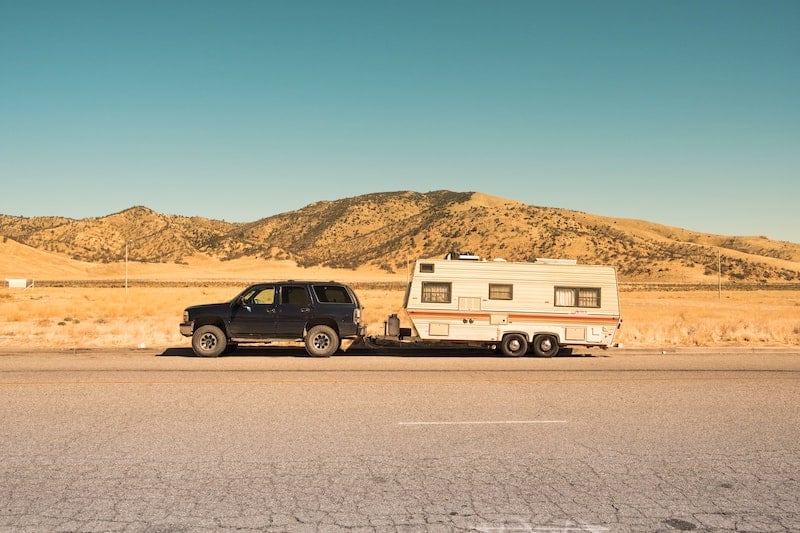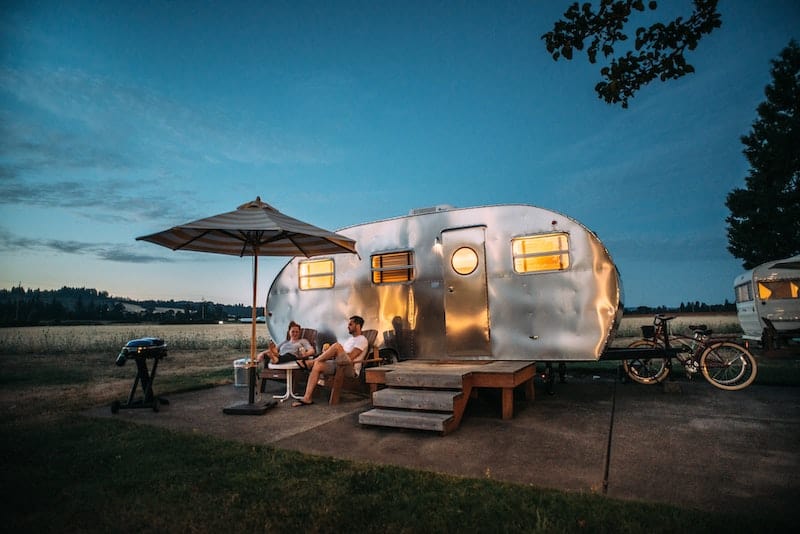Travel trailers are becoming more and more popular every year. They’re convenient because you can hook them up to your car or truck, drive on out to some nice spot in the country, and enjoy nature for a few days or weeks. Then when you need to come back home, it’s easy on-easy off; unhook your travel trailer from your car by backing up between the hitch receiver on the car and the hitch coupler on the trailer. It takes just a few moments to unhitch. You don’t have to hassle with any cranking or puzzling out of gears like you would if you had an automatic transmission.

Unfortunately, there’s at least one problem that users of these recreational vehicles need to be aware of: they’re not always as safe as they should be. Every so often, a news report will show up about an accident involving a vehicle-trailer combination of some kind. Sometimes the accident is the result of driver error or faulty maintenance, but sometimes it’s due to a problem with the trailer itself. They sometimes come apart at their joints and have been known to turn over themselves if they’re not properly fastened down. It does not just travel trailers that have these problems either; there have been instances where even fifth wheel camping trailers have broken free from their hitches and caused tragic accidents on highways due to no fault of the drivers involved.
Power Source
When going for recreation with travel trailers, one of the most important valuables is a power source. Here’s where a generator becomes useful. The good news is that portable generators are usually very affordable, but the only drawback is how loud they can be while running. Investing in an RV ready generator ensures that you don’t deplete your battery and you can power it continuously with no interruptions. A great way to use generators with travel trailers while camping would be for an alternating power source. By alternating the power sources, you will avoid overcharging your system and save on fuel consumption. When getting an RV-ready generator, it is important to check the dimensions carefully. A common mistake is getting a generator that’s too big and will only operate at higher RPMs which will ultimately drain your battery as well as cost you more on fuel consumption.
You will also get longer life from all your batteries by using this method rather than running one at a time. Alternating each battery connection point, in turn, will ensure that large loads do not drain them too low before the next charging cycle takes place. They will stay healthier for much longer periods of time due to the fact that you are giving them equalization charges on a more regular
Make Sure the Hitch is Properly Locked
From experience, we know how important it is to check over a travel trailer before going on a trip. You need to make sure that bolts are tight and secure, ensure nothing will break loose such as the latch for hitches. It’s also recommended to take down your spare tire and give it a quick visual inspection. This will help prevent problems from occurring while traveling. Before setting out on your trip, be sure that everything is properly stowed away inside of the travel trailer and ensure that there is enough room for any supplies you might pick up along the way.
Plan Accordingly
Traveling with a travel trailer requires extensive planning. You’ll need to make sure you can get enough supplies for the length of time you will be on the road, check the weather forecast ahead of time, and get all your supplies ready before setting out. This includes making sure that everything is in good working order if you’re taking your own car or truck along on the trip, there are no issues like low tires or dead batteries that could prevent it from starting. One more thing that should be looked over would be safety precautions such as checking locks on storage bins, ensuring latches on doors are secure so nothing falls out while traveling down bumpy roads.

So before setting out on your trip with a travel trailer, be sure that everything is properly stowed away inside of it and ensure there is enough room for any supplies you might pick up along the way. When driving in conditions where roads are wet or, ensure that all locks are securely fastened on storage bins so nothing falls out while traveling down bumpy roads. Before leaving, check the exterior of your travel trailer carefully for any loose bolts or screws that may come loose while you are driving. Be cautious of anything that could potentially become damaged while traveling such as locks, trees overhanging the road, and low hanging signs or wires that might get caught on it.
If you follow these simple tips when taking a travel trailer on a long trip will ensure avoidable problems later in your journey. It’s also important to remember that things don’t always go according to plan which is why it’s smart to have an extra set of supplies in case you run across delays along your route due to weather conditions or road closures.